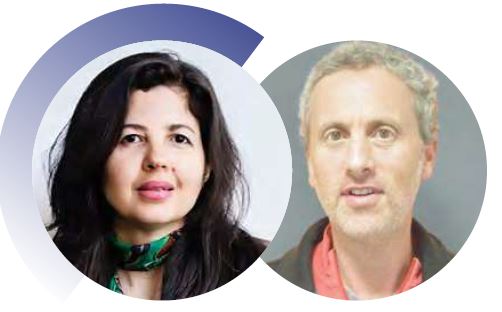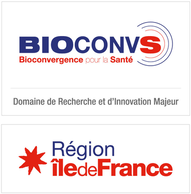BioConvS in La Revue Parlementaire
We’re thrilled to announce that the DIM BioConvS has been featured on the current issue of La Revue Parlementaire!
BioConvS coordinators, Amanda Silva Brun and Ariel Lindner, talk about our project and our commitment for the socio-economic development of Ile-de-France’s biotherapy scientific community.
At BioConvS, we recognize the significance of political involvement in promoting scientific progress, as well as the crucial role that policies and partnerships between policymakers and the scientific community play in tackling societal issues.
Bioproduction, biotherapy, and synthetic biology are pivotal areas with implications for economic growth, healthcare, and environmental sustainability. By prioritizing support for initiatives like our DIM, policymakers can drive innovation and contribute to solving pressing issues, both locally and internationally.
Innovating the way we innovate in biotherapy, bioproduction, and synthetic biology: DIM BioConvS
How to accelerate the generation of socio-economic impact from research in the Île-de-France Region?
Labeled as a Major Research and Innovation Domain (DIM) of the Île-de-France Region in 2022, the BioConvergence for Health project (DIM BioConvS) aims to structure an area of excellence, serving as an international reference in the field of biology engineering, bioproduction, and biotherapy. The DIM BioConvS is led by Amanda Silva Brun (CNRS, Université Paris Cité) and Ariel Lindner (INSERM, Université Paris Cité), who share here the actions, ambitions, and strategy of this large-scale project.

What are the key figures of the DIM BioConvS?
It is a 5-year project with a total budget of around €15 million, involving a community of 700 members (>70 research teams) launched by 12 founding institutions. The project leaders are Université Paris Cité, Sorbonne Université, Université Paris-Saclay, Université PSL, CNRS, INSERM, INRAE, CEA, Institut Curie, Genopôle, Medicen, and APHP. Our objective is to fund at least 50 pieces of equipment, 17 doctoral theses, and 5 post-docs, and to support the creation of at least 15 new start-ups.What are the challenges within the framework of the DIM BioConvS?
Synthetic biology, biotherapy, and bioproduction all involve the manipulation of living organisms, the complexity of which presents several scientific and technological challenges. In particular, there is a significant need to establish approaches that enable efficient, standardized, automatable production yields compatible with scaling up. Biotherapies have very high and unsustainable prices for our healthcare system. All these challenges represent opportunities for innovation that can be addressed through new scientific discoveries. The DIM BioConvS aims to promote innovation to develop approaches that integrate scientific discoveries, unmet medical needs, as well as market and healthcare system constraints.What is the flagship structuring project of the DIM BioConvS?
It is the first Biofoundry in the Île-de-France region with a unique set of equipment and automation in France: a true living factory to ensure all stages of creating biological tools and production processes, from in silico design, realization, evaluation, and optimization, to scaling up production. The Biofoundry will serve both fundamental research development in synthetic biology and as a production tool to support the emergence of new bioproduction methods for biotherapies.
What actions have already been implemented?
In one year, DIM BioConvS has selected 7 doctoral projects and 3 post-doc projects for funding on strategic topics. We have contributed to the structuring of our community by financing 12 small and medium-sized equipment purchases. The procurement of the first equipment for the flagship project Biofoundry has also been initiated. In order to offer training to our members, we have established key partnerships with the International Society of Cell Therapy, the European Society for Animal Cell Technology, and with EIT Health and HEC. BioConvS has supported the teams from the Île-de-France region participating in IGEM, the major international event in synthetic biology, as well as the France Bioproduction Congress.What is BioConvS’s strategy for innovating the way we innovate?
We have an experimental approach to innovation with a precision-based evidence approach. Our actions such as our Innovation Day (>200 participants) or our Innovators of Tomorrow program (30 members) are formulated based on questions, hypotheses, and metrics. We view our community from the perspective of a complex system: its processes, flows, self-organization, etc. This analysis not only allows us to establish a framework but also to identify levers that are useful for developing our action plan.
La Revue Parlementaire provides in-depth coverage of parliamentary affairs and political discourse. It offers analysis, commentary, and insights into current events, serving as a valuable resource for understanding and engaging with the political landscape.
Consult our data protection policy
Address:
DIM BioConvS
Faculté des Sciences - Université Paris Cité
5 rue Thomas Mann 75013 Paris


